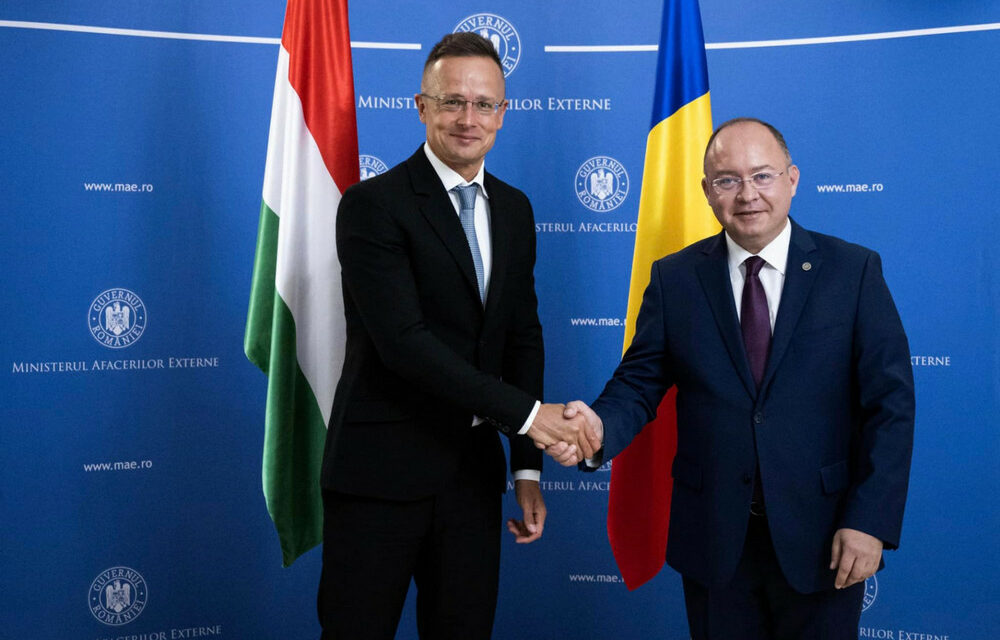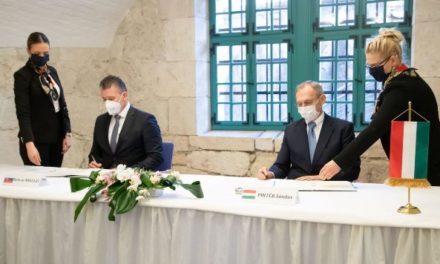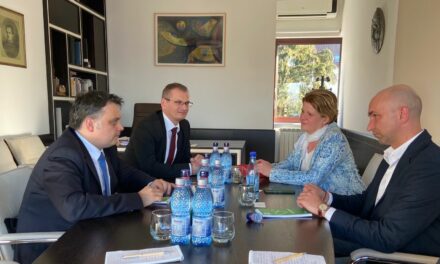Hungary and Romania were not as dependent on each other as they are now, and the governments of the two countries are aware of this, but at the same time, Bucharest is still suspicious of the expressions of Hungarian politicians - this can be seen from what the two foreign ministers, Péter Szijjártó and Bogdan Aurescu, have said. was announced in public after his weekly meeting in Bucharest, reports kronikaonline.ro.
The reason is obvious: the war launched by Russia against Ukraine poses a major security risk for both countries just because of its proximity, and if problems related to energy carriers do not affect the two countries equally due to Romania's natural gas reserves, the economic crisis, inflation, the devaluation of its own currency and the consequences of the refugee crisis are the same.
At the moment, it is not known exactly what the effects of the war in Ukraine will be in a few months and the resulting sanctions imposed by the EU on Russia, which, according to the current situation, will cause more damage to the Union. Therefore, it is important that the two neighboring countries located in the immediate vicinity of the war zone, and which also belong to the same economic-political and military alliance, seize all means that can ease the situation of their citizens through cooperation. Increasing the capacity of natural gas transport interconnectors and transporting the heating elements of nuclear power plants to Hungary via Romania are such tools that can bring the two countries closer to each other in addition to pragmatic cooperation.
Nevertheless, it can be deduced from some of the hints of the Romanian foreign minister that falling on each other's necks and settling historical grievances is still a long way off. The somewhat incidental, but still emphatically dropped remark that it is important that the speeches of the officials of the two countries at Tusványos be in line with the spirit of the strategic partnership and the Romanian-Hungarian basic agreement, is a kind of diplomatically wrapped warning addressed to the Hungarians.
In other words, Bucharest still watches with suspicion that members of the Hungarian government in Transylvania, Hungarian politicians and intellectuals from Transylvania, and some Romanian intellectuals discuss the most important challenges affecting the two countries and the region.
However, the most natural means of dispelling suspicions and rapprochement would be if the Romanian members of the Bucharest government themselves visited the event. The negative consequences of the war are only compounded and aggravated if, in the meantime, countries that are in principle allied with each other and have similar historical experiences are more concerned with fighting each other. What's more, this is only grist to the mill of the aggressor - in our case, Vladimir Putin.
Based on all of this, one of the main dilemmas remains how to make Romanian officials aware that granting the Hungarian community community and native language rights is in the same interest of Romania as maintaining good economic relations with Hungary. For the time being, Bucharest is trying to appropriate the issue of minorities by challenging the rights of the Romanian minority in Hungary and the meeting of the joint Hungarian-Romanian minority committee.
The issue of the Romanian minority is again more of a pre-emptive strike, since as long as Bucharest complains that the rights of the Romanian community living in Hungary are allegedly being undermined, Budapest has no moral basis to hold the Hungarians in Romania accountable. Even if this approach is quite disproportionate and annoying due to the number of people in the two communities, it is positive that, according to Aurescu, the Hungarian side has promised to ensure the Romanian-language press and mother-tongue education. The sources should not be regretted for this, since the goal is that Bucharest cannot complain about the rights of the Romanians in Hungary, but in return the Hungarian side can demand that Romania also guarantees the rights of the Hungarian community in Transylvania. In addition, it can provide a basis for the continuation and expansion of the economic development program.
The Romanian side has also been pushing for a meeting of the Hungarian-Romanian joint committee for a long time. Of course, the meeting will only have real meaning if it can achieve a meaningful result in terms of improving the situation of the Hungarians in Romania and the Romanian community in Hungary. An empty protocol full of slogans, especially the situation of the Hungarian minority in Romania, which differs from reality in an idealized way, would only harm the affected communities and the bilateral relationship.
The authorities in Bucharest should think about the fact that by sweeping aside the legitimate demands of the Hungarian community, they are only making Hungarians even more vulnerable to Russian propaganda. Therefore, maintaining and even deepening the antagonisms between the two countries does not serve the interests of either of them. Moscow's, on the other hand, is even more so.
Source: Krónikaonline.ro
Photo source: transtelex.ro












